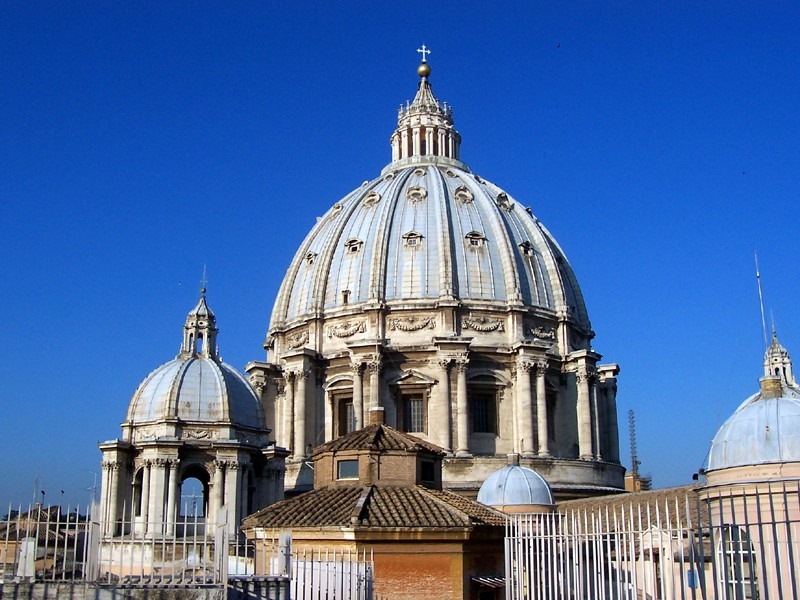We no longer dare to believe in beauty and we make of it a mere appearance in order the more easily to dispose of it.

About Hans Urs von Balthasar
Hans Urs von Balthasarwas a Swiss theologian and Catholic priest who is considered one of the most important Catholic theologians of the 20th century. With Joseph Ratzinger and Henri de Lubac, he founded the theological journal Communio.
More quotes from Hans Urs von Balthasar
Whoever removes the Cross and its interpretation by the New Testament from the center, in order to replace it, for example, with the social commitment of Jesus to the oppressed as a new center, no longer stands in continuity with the apostolic faith.
Swiss Catholic theologian
Not longer loved or fostered by religion, beauty is lifted from its face as a mask, and its absence exposes features on that face which threaten to become incomprehensible to man.
Swiss Catholic theologian
Beauty is the disinterested one, without which the ancient world refused to understand itself, a word which both imperceptibly and yet unmistakably has bid farewell to our new world, a world of interests, leaving it to its own avarice and sadness.
Swiss Catholic theologian
The Passion narratives are the first pieces of the Gospels that were composed as a unity.
Swiss Catholic theologian
It is, finally, a word is untimely in three different senses, and bearing it as one’s treasure will not win one anyone’s favours; one rather risks finding oneself outside everyone’s camp… Beauty is the word that shall be our first.
Swiss Catholic theologian
We no longer dare to believe in beauty and we make of it a mere appearance in order the more easily to dispose of it.
Swiss Catholic theologian
The Christian response is contained in these two fundamental dogmas: that of the Trinity and that of the Incarnation. In the trinitarian dogma God is one, good, true, and beautiful because he is essentially Love, and Love supposes the one, the other, and their unity.
Swiss Catholic theologian
Even if a unity of faith is not possible, a unity of love is.
Swiss Catholic theologian
Prior to an individual’s encounter with the love of God at a particular time in history, however, there has to be another, more fundamental and archetypal encounter, which belongs to the conditions of possibility of the appearance of divine love to man.
Swiss Catholic theologian
The inner reality of love can be recognized only by love.
Swiss Catholic theologian
To be sure, the response of faith to revelation, which God grants to the creature he chooses and moves with his love, occurs in such a way that it is truly the creature that provides the response, with its own nature and its natural powers of love.
Swiss Catholic theologian
Thus it is necessary to commence from an inescapable duality: the finite is not the infinite.
Swiss Catholic theologian
If one does away with the fact of the Resurrection, one also does away with the Cross, for both stand and fall together, and one would then have to find a new center for the whole message of the gospel.
Swiss Catholic theologian
Our situation today shows that beauty demands for itself at least as much courage and decision as do truth and goodness, and she will not allow herself to be separated and banned from her two sisters without taking them along with herself in an act of mysterious vengeance.
Swiss Catholic theologian
The work with which we embark on this first volume of a series of theological studies is a work with which the philosophical person does not begin, but rather concludes.
Swiss Catholic theologian
The One, the Good, the True, and the Beautiful, these are what we call the transcendental attributes of Being, because they surpass all the limits of essences and are coextensive with Being.
Swiss Catholic theologian
St. Paul would say to the philosophers that God created man so that he would seek the Divine, try to attain the Divine. That is why all pre-Christian philosophy is theological at its summit.
Swiss Catholic theologian
Without a doubt, at the center of the New Testament there stands the Cross, which receives its interpretation from the Resurrection.
Swiss Catholic theologian
If God wishes to reveal the love that he harbors for the world, this love has to be something that the world can recognize, in spite of, or in fact in, its being wholly other.
Swiss Catholic theologian
But the issue is not only life and death but our existence before God and our being judged by him. All of us were sinners before him and worthy of condemnation.
Swiss Catholic theologian
The first attempt at a response: there must have been a fall, a decline, and the road to salvation can only be the return of the sensible finite into the intelligible infinite.
Swiss Catholic theologian